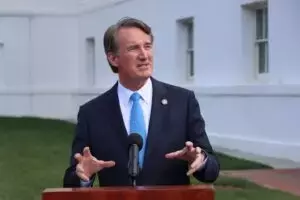Governor Glenn Youngkin has made a significant move by announcing an additional $290 million request to the legislature for school construction and modernization efforts across Virginia. This latest investment aims to bring the total funding for the current biennium to $700 million and raise the state's overall contribution under his administration to nearly $2 billion. The governor's proposed budget amendments, which he plans to present next week at a joint meeting of the General Assembly's money committees, include this crucial funding request.
Impact on School Facilities and Student Success
According to the governor's office, the state's financial commitments have spurred an estimated $3.4 billion in total funding for school construction. The additional $290 million in non-general funds will expand competitive grant opportunities for school divisions, particularly in high-need areas. It will also address critical infrastructure issues, supporting the construction and renovation of schools in urgent need of repair. State officials believe that this increased funding will provide K-12 students with safer and more conducive learning spaces.Educators and community leaders alike have welcomed this move. Local school divisions will be able to apply for grant support to fast-track modernization projects that may have been delayed due to funding shortfalls. The Youngkin administration has framed this initiative as part of a broader effort to support Virginia's educational system and improve outcomes for students. As schools across the state face aging infrastructure and capacity challenges, this investment aims to reduce disparities in facility quality, especially in underserved areas.Secretary of Education's Perspective
Secretary of Education Aimee Guidera emphasized that providing safe, vibrant, and healthy learning environments for all students is one of the guiding principles of the Youngkin Administration. This investment in supporting new and refurbished school buildings makes it possible for every community in the commonwealth to provide a best-in-class education that prepares every student for success in the increasingly demanding knowledge- and skills-based economy.Delegate Candi Mundon King's View
Delegate Candi Mundon King, a member of the Commission on School Construction and Modernization, welcomed Youngkin's proposal but emphasized the need for more information. She said, "We have been screaming from the rooftops about more money for school construction and ensuring that localities have what they need, so I'm glad to see that he's trying to get on board. It is clear that we need to put more money into school construction, but I can't say more without seeing a fully fleshed out plan. So I'm looking forward to his presentation next week with the joint money committees so we can fully evaluate what this proposal actually is, and not just some slick press release that doesn't go into detail."2022 Legislative Session and Its Impact
In 2022, during Youngkin's first year in office, the General Assembly approved a historic $1.2 billion investment in school construction. This aimed to modernize aging facilities and reduce funding disparities among school divisions. The sweeping plan combined grants and loans to support renovations, new construction, and capacity expansion for K-12 schools across the commonwealth.Of the $1.2 billion, about $850 million was allocated for grants, including $400 million in formula-based grants and $266 million distributed based on the Local Composite Index. Another $450 million was funneled into the newly created School Construction Fund and Program, a competitive grant program for divisions with critical infrastructure needs. School systems with poor building conditions and limited financial capacity could apply for these funds.Virginia's School Infrastructure Crisis
Virginia faces a mounting crisis with school infrastructure. Data from the Virginia Department of Education in 2022 revealed that nearly 1,000 school buildings across the state are at least 50 years old, and replacing them would cost more than $25 billion. Traditionally, local governments have shouldered the financial burden of school construction, but for economically distressed areas, this has become a difficult challenge due to population decline and economic hardship.In April, Youngkin vetoed a bill that would have allowed localities to implement a 1% sales tax to help cover school construction costs. He argued that Virginia has already taken substantial steps to address these costs and that citizens should not face additional taxes.Revamping the Literary Fund
Prior to 2022, state assistance for school construction was limited, with much of it coming from the Literary Fund. Funded by unclaimed lottery winnings, criminal fines, and unclaimed property, the Literary Fund historically provided low-interest loans. However, in recent years, much of its revenue was redirected to cover teacher retirement costs, leaving fewer resources for school building projects.The 2022 legislative session retooled the Literary Fund's loan program, raising the maximum loan amount from $7.5 million to $25 million and capping the interest rate at 2%. These changes made it more feasible for school divisions to finance major construction projects at a lower cost.With the state's total contribution now approaching $2 billion, education advocates are hopeful that this increased funding will lead to long-term improvements in school facilities and better learning conditions for students throughout the commonwealth. Virginia Board of Education President Grace Creasey said that the panel will prioritize "those school divisions in greatest need that have missed out on prior grant opportunities," especially rural divisions. She also mentioned that school divisions are eager to adopt seat time flexibility and competency-based models, which requires different learning environments and spaces. This new investment will make this possible.



